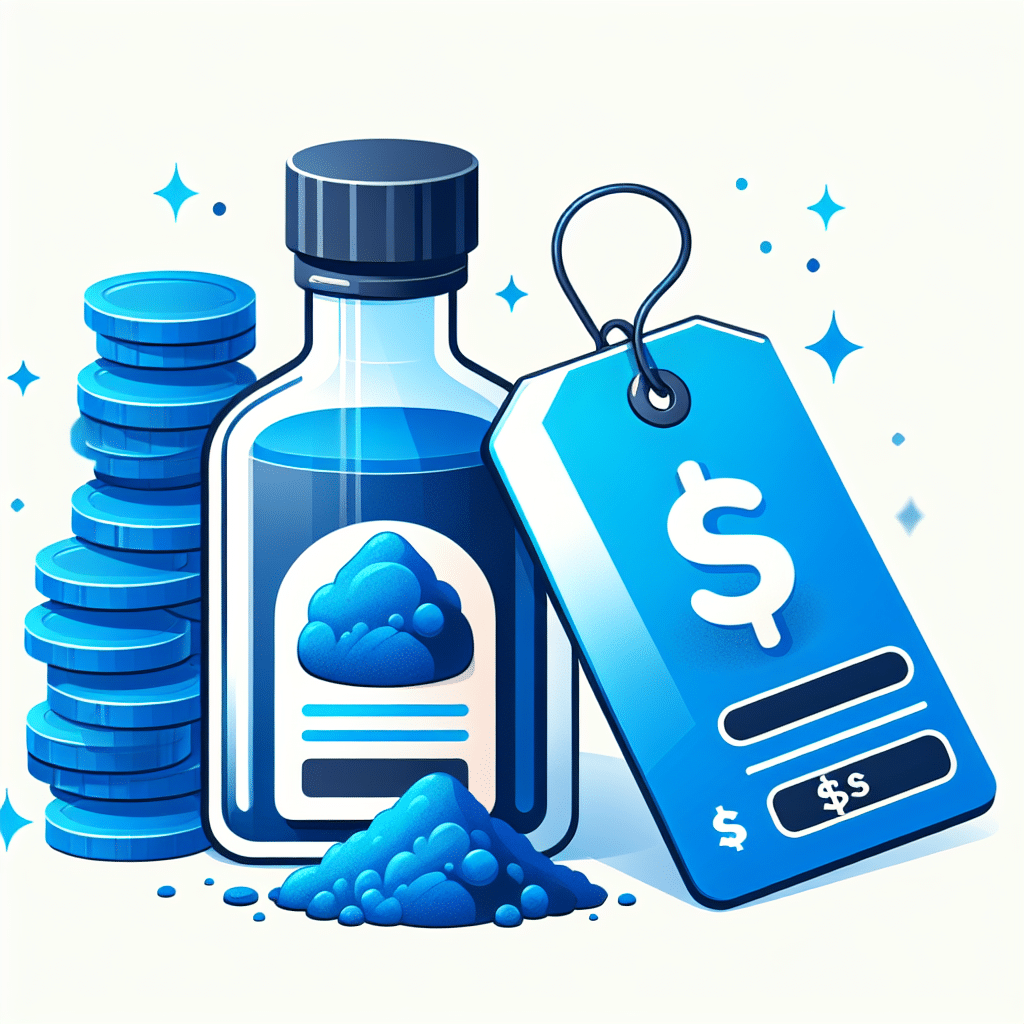What Is The Price Of Phycocyanin Pigment?
-
Table of Contents
- Phycocyanin Pigment Pricing: Factors, Trends, and Market Insights
- Understanding Phycocyanin and Its Applications
- Factors Influencing Phycocyanin Pricing
- Current Market Trends in Phycocyanin Pricing
- Price Range and Considerations for Buyers
- Case Studies and Examples
- Conclusion: Key Takeaways on Phycocyanin Pricing
- Discover ETprotein’s High-Quality Protein Products
Phycocyanin Pigment Pricing: Factors, Trends, and Market Insights

Phycocyanin is a natural pigment-protein complex found in blue-green algae, also known as cyanobacteria. It is not only responsible for the vibrant blue color of these organisms but also has garnered attention for its nutritional and therapeutic properties. As a result, phycocyanin has become a sought-after ingredient in the food and beverage industry, dietary supplements, and cosmetics. In this article, we will delve into the factors that influence the price of phycocyanin pigment, current market trends, and what buyers can expect when sourcing this unique compound.
Understanding Phycocyanin and Its Applications
Before discussing the price of phycocyanin, it’s essential to understand what it is and its applications. Phycocyanin is a type of phycobiliprotein, which is a family of water-soluble proteins present in cyanobacteria and certain algae. It is known for its antioxidant, anti-inflammatory, and neuroprotective properties, making it a valuable ingredient in health and wellness products.
- Food and Beverage Industry: Phycocyanin is used as a natural food colorant, especially in products that require a blue or green hue.
- Dietary Supplements: Due to its health benefits, phycocyanin is incorporated into supplements aimed at boosting immunity, reducing inflammation, and improving overall health.
- Cosmetics: In the beauty industry, phycocyanin is valued for its antioxidant properties and is used in skincare products to protect against oxidative stress.
Factors Influencing Phycocyanin Pricing
The price of phycocyanin pigment can vary widely based on several factors. Understanding these can help buyers make informed decisions when purchasing phycocyanin.
- Source and Quality: The purity and concentration of phycocyanin affect its price. Higher-grade phycocyanin, with fewer contaminants and a higher concentration of the active compound, will be more expensive.
- Extraction and Production Costs: The extraction process of phycocyanin from cyanobacteria is complex and can be costly, impacting the final price of the product.
- Supply and Demand: The balance between supply and demand significantly influences pricing. As the popularity of phycocyanin grows, demand increases, which can lead to higher prices, especially if supply is limited.
- Regulatory Compliance: Compliance with regulations for food and supplement safety can add to production costs, which are passed on to the consumer.
Current Market Trends in Phycocyanin Pricing
Market trends play a crucial role in the pricing of phycocyanin. As consumers become more health-conscious and seek natural products, the demand for phycocyanin has risen. This increased interest has led to more research and development in the extraction and application of phycocyanin, potentially leading to more cost-effective production methods in the future.
However, the market for phycocyanin is also subject to fluctuations due to environmental factors that affect the growth of cyanobacteria, such as water temperature and nutrient availability. These environmental factors can lead to variability in supply and, consequently, in price.
Price Range and Considerations for Buyers
The price of phycocyanin pigment can range from a few hundred to several thousand dollars per kilogram, depending on the factors mentioned above. When considering purchasing phycocyanin, buyers should take into account the following:
- The intended application and required purity level of phycocyanin.
- The reputation and reliability of the supplier.
- The volume of phycocyanin needed, as bulk purchases may reduce the cost per unit.
- Any additional costs associated with shipping, handling, and import duties.
Case Studies and Examples
Several case studies highlight the economic and market dynamics of phycocyanin. For instance, a study on the commercial production of phycocyanin in photobioreactors demonstrated the potential for cost reduction through optimized cultivation conditions. Another example is the development of new extraction techniques that increase yield and purity, which could lead to more competitive pricing in the future.
Conclusion: Key Takeaways on Phycocyanin Pricing
In conclusion, the price of phycocyanin pigment is influenced by a variety of factors, including quality, production costs, supply and demand, and regulatory compliance. As the market for phycocyanin continues to grow, driven by consumer interest in natural and health-promoting products, it is likely that we will see further innovation in production and extraction methods. This could lead to more stable pricing and increased availability of high-quality phycocyanin for various industries.
Discover ETprotein’s High-Quality Protein Products
If you’re in the market for high-quality protein products, consider exploring the offerings from ETprotein. Their extensive range of organic bulk vegan proteins and L-(+)-Ergothioneine (EGT) caters to diverse industries, including nutraceuticals, pharmaceuticals, cosmeceuticals, and food and beverage. With a commitment to non-GMO, allergen-free products with high purity levels, ETprotein is a reliable source for your protein needs.
About ETprotein:
ETprotein, a reputable protein and L-(+)-Ergothioneine (EGT) Chinese factory manufacturer and supplier, is renowned for producing, stocking, exporting, and delivering the highest quality organic bulk vegan proteins and L-(+)-Ergothioneine. They include Organic rice protein, clear rice protein, pea protein, clear pea protein, watermelon seed protein, pumpkin seed protein, sunflower seed protein, mung bean protein, peanut protein, and L-(+)-Ergothioneine EGT Pharmaceutical grade, L-(+)-Ergothioneine EGT food grade, L-(+)-Ergothioneine EGT cosmetic grade, L-(+)-Ergothioneine EGT reference grade and L-(+)-Ergothioneine EGT standard. Their offerings, characterized by a neutral taste, non-GMO, allergen-free attributes, with L-(+)-Ergothioneine purity over 98%, 99%, cater to a diverse range of industries. They serve nutraceutical, pharmaceutical, cosmeceutical, veterinary, as well as food and beverage finished product distributors, traders, and manufacturers across Europe, USA, Canada, Australia, Thailand, Japan, Korea, Brazil, and Chile, among others.
ETprotein specialization includes exporting and delivering tailor-made protein powder and finished nutritional supplements. Their extensive product range covers sectors like Food and Beverage, Sports Nutrition, Weight Management, Dietary Supplements, Health and Wellness Products, and Infant Formula, ensuring comprehensive solutions to meet all your protein needs.
As a trusted company by leading global food and beverage brands and Fortune 500 companies, ETprotein reinforces China’s reputation in the global arena. For more information or to sample their products, please contact them and email sales(at)ETprotein.com today.












